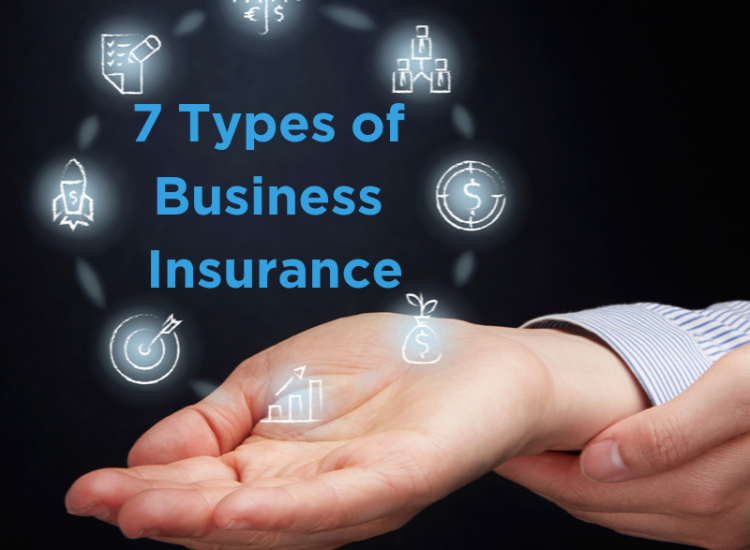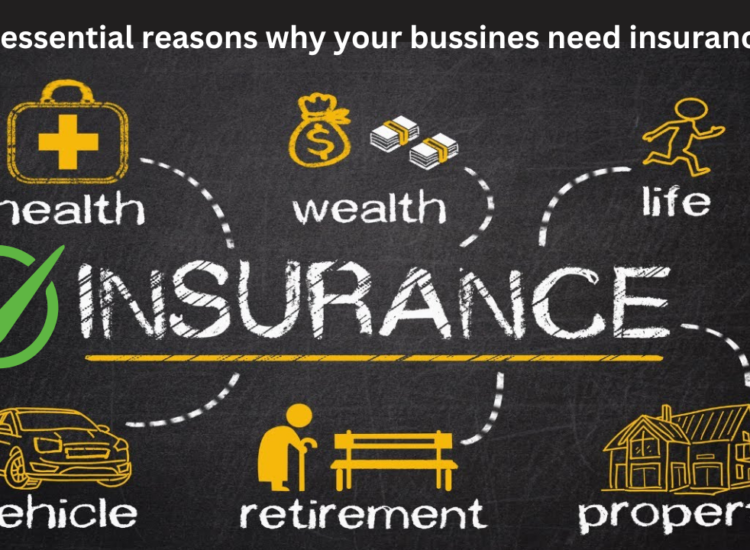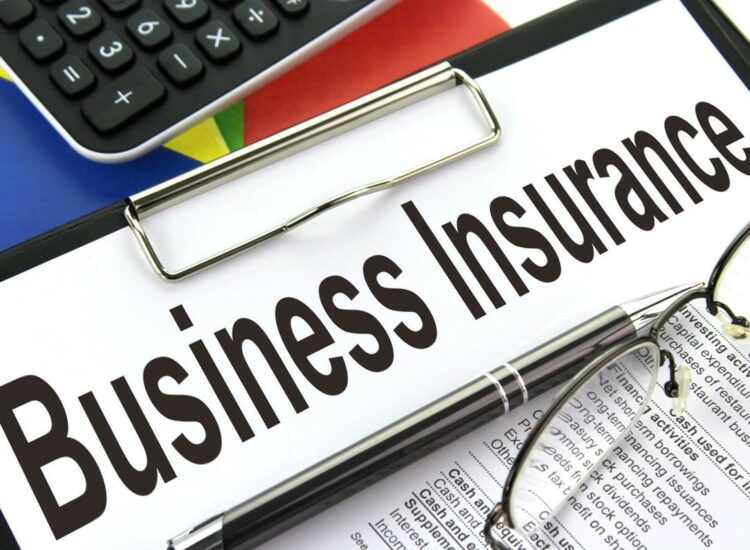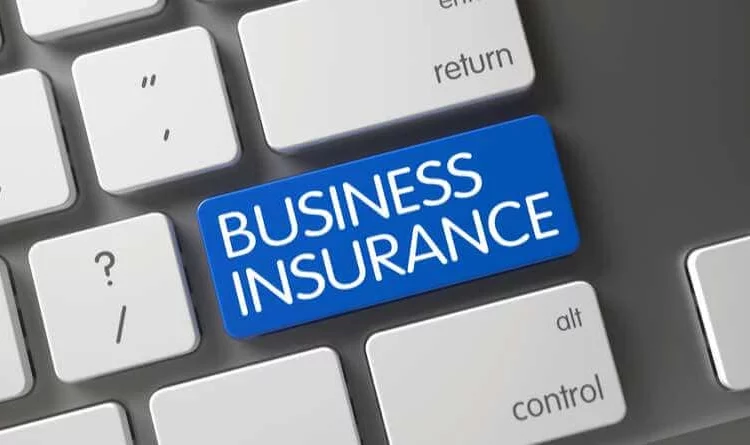The Essential Shield: Why Business Insurance for Small Business is Non-Negotiable
Being a small business owner is an exercise in passion, dedication, and often, a healthy dose of risk-taking. From meticulously crafting your products or services to building a loyal customer base, you’ve poured your heart and soul into your venture. However, amidst the daily operations and strategic planning, one crucial aspect often gets overlooked or underestimated: business insurance for small business. This isn’t just another expense; it’s the bedrock of your long-term stability and a vital shield against unforeseen circumstances that could otherwise cripple or even shutter your doors. In this comprehensive guide, we will delve into the paramount importance of business insurance, explore the essential types of coverage available, and provide insights on how to choose the right protection for your unique small business needs.
Toc
- 1. Understanding the Importance of Business Insurance for Your Small Business
- 2. Navigating the Different Types of Business Insurance for Small Businesses
- 3. Related articles 01:
- 3.1. Foundational Coverage: General Liability Insurance
- 3.2. Protecting Your Physical Assets: Commercial Property Insurance
- 3.3. Covering Your Team: Workers’ Compensation Insurance
- 3.4. Shielding Against Professional Errors: Professional Liability Insurance (E&O)
- 3.5. Protecting Your Vehicles: Commercial Auto Insurance
- 3.6. Addressing Cyber Threats: Cyber Insurance
- 3.7. Ensuring Business Continuity: Business Income Insurance
- 4. Choosing the Right Business Insurance: Key Factors and Considerations
- 5. Related articles 02:

Understanding the Importance of Business Insurance for Your Small Business
While you might be tempted to cut costs in the early stages or believe that “it won’t happen to me,” neglecting business insurance is akin to navigating a storm without an anchor. The reality is that unexpected events, ranging from minor incidents to major catastrophes, can occur at any time, and without the right insurance in place, your business and personal assets could be severely jeopardized.
Protecting Against Unexpected Financial Costs
One of the primary reasons why business insurance for small business is crucial is the protection it offers against unexpected financial burdens. Imagine a customer slipping and falling in your store, sustaining injuries that require medical attention and potentially leading to a lawsuit. Without general liability insurance, your business could be on the hook for substantial medical expenses, legal fees, and settlement costs, potentially draining your resources and threatening your solvency. Similarly, a fire in your office or a natural disaster damaging your inventory could lead to significant repair or replacement costs that are difficult to absorb without the safety net of commercial property insurance. Business insurance helps absorb these unexpected costs, allowing you to continue operating and recover from setbacks without facing financial ruin. It acts as a buffer, preventing isolated incidents from escalating into existential threats to your business.
Fulfilling Legal and Contractual Requirements
Beyond protecting your business from financial losses, certain types of business insurance for small business are often legal requirements or mandated by contracts. For instance, if your business has employees in most states, you will be legally obligated to carry workers’ compensation insurance. This coverage protects your employees if they suffer work-related injuries or illnesses, covering their medical expenses and lost wages. Failure to comply with these legal requirements can result in hefty fines and penalties. Furthermore, many clients or business partners may require you to hold specific types of insurance, such as professional liability insurance or cyber insurance, as a condition of doing business with them. Having the necessary insurance not only keeps you compliant but also enhances your credibility and opens doors to new opportunities. It demonstrates to stakeholders that you are a responsible and reliable business partner who takes potential risks seriously.
The world of business insurance for small business can seem complex, with various types of coverage designed for different needs and risks. Understanding the fundamental types of insurance available is crucial for making informed decisions about protecting your specific business.
Foundational Coverage: General Liability Insurance
Often considered the cornerstone of business insurance for small business, general liability insurance (GL) provides broad protection against third-party claims of bodily injury, property damage, and personal and advertising injury. This type of insurance is essential for virtually all businesses, regardless of size or industry. If a customer is injured on your premises, their property is damaged by your business operations, or you are accused of slander or copyright infringement, general liability insurance can help cover the associated costs, including legal defense, medical expenses, and settlement fees. It safeguards your business from common yet potentially costly claims that can arise from your daily operations.
Protecting Your Physical Assets: Commercial Property Insurance
For businesses that own or lease physical premises, commercial property insurance is vital. This coverage helps protect your business’s physical assets, such as your building, equipment, inventory, and furniture, from damage or loss due to covered perils like fire, windstorms, theft, and vandalism. Whether you operate from a storefront, an office, or a warehouse, your physical assets are crucial to your ability to function. Commercial property insurance ensures that you can repair or replace damaged or lost property, minimizing disruptions to your operations and allowing you to get back to business as quickly as possible.
Covering Your Team: Workers’ Compensation Insurance
If your small business employs one or more individuals, workers’ compensation insurance is likely a legal requirement and a crucial form of protection for your employees. This insurance provides benefits to employees who experience work-related injuries or illnesses, including medical expenses, lost wages, and rehabilitation costs. In return, employees typically waive their right to sue their employer for these injuries. Workers’ compensation not only fulfills a legal obligation but also demonstrates your commitment to the well-being of your employees, fostering a positive and supportive work environment.
Shielding Against Professional Errors: Professional Liability Insurance (E&O)
Businesses that provide professional services or advice, such as consultants, accountants, lawyers, and marketing agencies, face the risk of liability arising from alleged errors, omissions, or negligence in their professional services. Professional liability insurance, also known as errors and omissions (E&O) insurance, is specifically designed to protect against these types of claims. Even if you haven’t made a mistake, the cost of defending against a lawsuit can be substantial. Professional liability insurance can cover legal defense costs and any resulting damages or settlements, safeguarding your business’s reputation and financial stability.
Protecting Your Vehicles: Commercial Auto Insurance
If your small business uses vehicles for its operations, whether it’s a single car or a fleet of trucks, commercial auto insurance is essential. Personal auto insurance policies typically exclude coverage for business-related use of vehicles. Commercial auto insurance provides coverage for accidents involving your business vehicles, including bodily injury and property damage liability, as well as coverage for damage to your own vehicles. This ensures that your business and its employees are protected while on the road for work-related purposes.
Addressing Cyber Threats: Cyber Insurance
In today’s increasingly digital world, cyber insurance has become an indispensable form of business insurance for small business. Cyberattacks and data breaches are becoming more frequent and sophisticated, and small businesses are often prime targets. Cyber insurance can help cover the costs associated with data breaches, including notification expenses, data recovery, legal fees, and business interruption losses. It provides a critical safety net in the face of evolving digital threats and helps your business respond effectively to security incidents.
Ensuring Business Continuity: Business Income Insurance
Unforeseen events can sometimes force your business to temporarily shut down. Business income insurance, also known as business interruption insurance, helps replace lost income and cover certain operating expenses if your business is unable to operate due to a covered loss, such as a fire or natural disaster. This coverage can be crucial for ensuring the survival of your business during unexpected disruptions, allowing you to meet ongoing obligations and get back on your feet more quickly.
Choosing the Right Business Insurance: Key Factors and Considerations
Selecting the appropriate business insurance for small business requires a thoughtful assessment of your specific risks and needs. There’s no one-size-fits-all solution, and the right coverage will depend on various factors unique to your business.

Assessing Your Business Risks and Needs
The first step in choosing the right insurance is to thoroughly assess your business risks and needs. Consider the specific industry you operate in, the size of your business, your physical location, the number of employees you have, and the types of services or products you offer. Identify the potential risks that your business might face, such as customer injuries, property damage, professional errors, cyberattacks, and natural disasters. Understanding your specific risk profile will help you determine which types of insurance coverage are most critical for your protection. For instance, a restaurant will have different insurance needs than a home-based consulting business.
Evaluating Your Budget and Coverage Options
Once you have a clear understanding of your risks, you need to evaluate your budget and explore your coverage options. Business insurance premiums can vary significantly depending on the type and amount of coverage you choose. It’s essential to find a balance between adequate protection and affordability. Consider obtaining quotes from multiple insurance providers to compare rates and coverage options. Look for opportunities to bundle different types of insurance policies, such as a Business Owner’s Policy (BOP), which combines general liability, commercial property, and business income coverage into a single policy, often at a more cost-effective price. However, ensure that the bundled policy provides sufficient coverage for your specific needs and don’t solely focus on the cheapest option; prioritize adequate protection.
Comparing Quotes and Understanding Policy Details
When comparing insurance quotes, it’s crucial to look beyond just the premium price. Carefully examine the coverage limits, deductibles, exclusions, and terms and conditions of each policy. Understand what is and isn’t covered, the maximum amount the insurer will pay for a claim, and the amount you will need to pay out-of-pocket before the insurance coverage kicks in. Don’t hesitate to ask insurance agents to explain any aspects of the policy that you don’t fully understand. Choosing a reputable and financially stable insurance company is also essential to ensure that they will be able to pay out claims when needed. Review the insurer’s ratings and reputation before making a decision. Regularly review your insurance policies as your business evolves and your needs change. What might have been adequate coverage in the early stages of your business may no longer be sufficient as you grow and take on new risks. Schedule periodic reviews with your insurance provider to ensure your coverage remains aligned with your current business operations and potential liabilities.
In conclusion, business insurance for small business is not merely an option but a fundamental necessity for protecting your hard work, financial stability, and long-term success. By understanding the importance of insurance, navigating the different types of coverage available, and carefully considering your unique business risks and needs, you can make informed decisions that provide you with the essential shield against the unpredictable nature of the business world. Don’t wait for an unexpected event to highlight the critical role of insurance; invest in the right protection today and build a more secure and resilient future for your small business.











